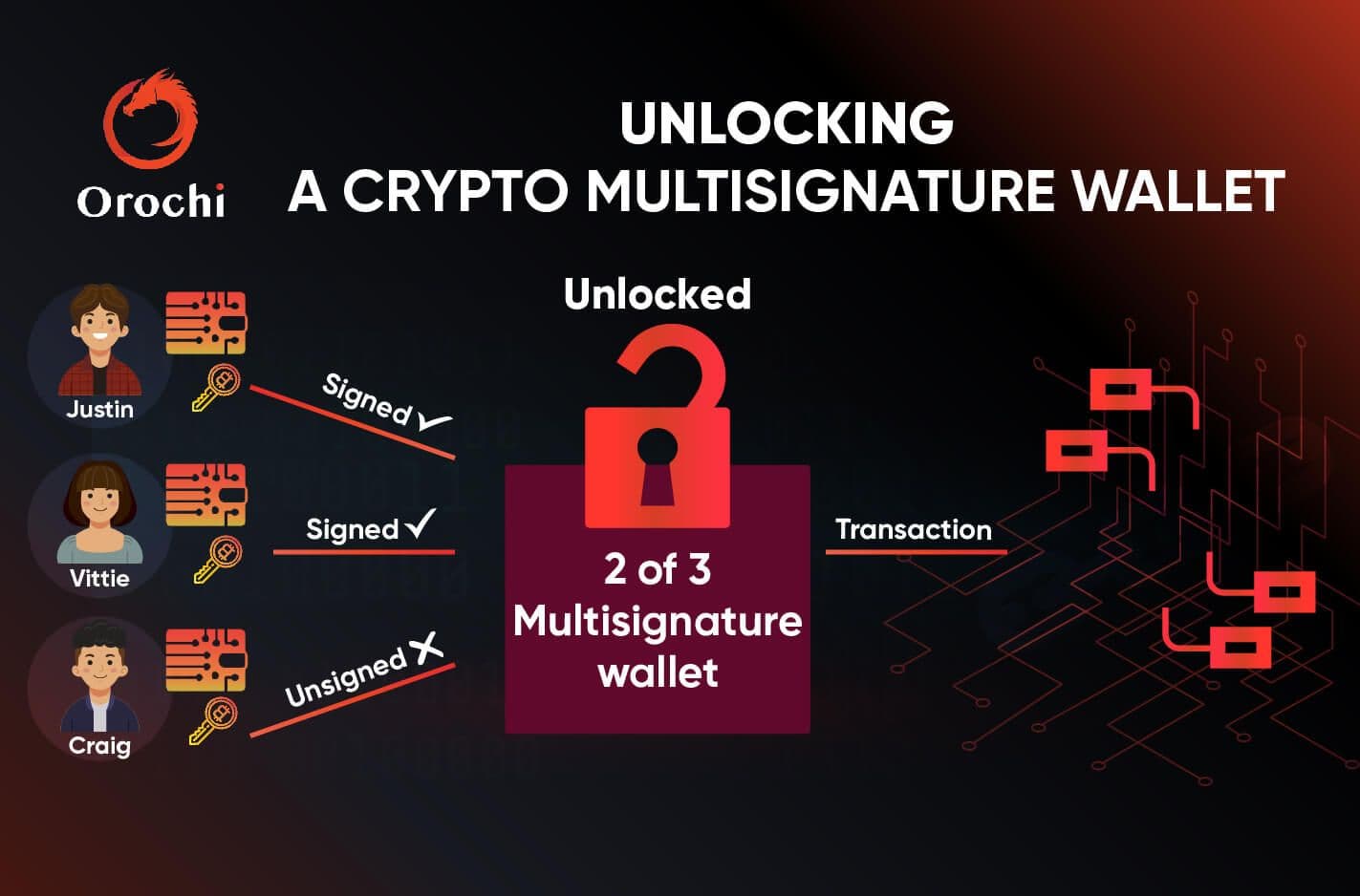
In traditional cryptocurrency wallets, moving digital assets to another wallet requires entering a single private key. As a result, these types of wallets are referred to as single-signature wallets. Although they might be hot, cold, custodial, or non-custodial wallets, they are all single-signature. As a result, transactions may be authorized using just one private key.
It is true that single-signature wallets are quite secure, but they still feature a single point of failure. In case the private key is lost, stolen, or otherwise compromised, you risk losing all of your cryptocurrency assets. This poses a big danger to your assets, especially if you have a lot of money in your portfolio. In this situation, using a multisignature wallet might be more useful and secure.
In this article, we will review how a multisignature wallet works and why you should use a multisignature wallet.
How does a multisignature wallet work?
You can think of a treasure that requires more than one key to open. This basically explains how multi signature wallets work. In the process of setting up a multisignature wallet, you are allowed to choose the number of keys required to open the vault. For example, you can create a 3-of-4 multisignature wallet where three out of four private keys are needed to conduct a transaction.
Specifically, Justin, Vittie and Craig create a 2-of-3 multisignature wallet, in which two out of three private keys are required to approve a transaction. To start the transaction, Justin would initiate the transaction and sign with this key. After that, the transaction will go into the “Waiting For Sign” mode. Until either Vitte or Craig, or both sign the transaction with their keys, the transaction will proceed.

5 Reasons Why You Should Use A Multisignature Wallet
Get rid of a single point of failure
When resources or access rights are managed by a single account, private keys are easily vulnerable to compromise. As a result, a system could develop a single point of failure. To disperse the risk among all parties and increase security, the funds and access rights should be distributed across different entities.
The owners must make certain that their private keys are not held in a public place or on a public computer in order to prevent the possibility of a single point of failure. It is also possible to customize the number of signatures required for a transaction to be executed. The key stakeholder of the multisignature must ensure that access to the multisignature wallet is only allowed to trusted entities due to the risk of misuse by untrusted/less-trusted entities or users of the multisignature wallet.
Reduce the dependency on one device
As the usage of digital currencies and cryptocurrency transactions increases, people are seeking secure ways to deposit money online. Unfortunately, many single-key wallets make it easy to lose the key or allow someone else to use it. With multisignature wallets, several keys may be kept in multiple places. You can save one key digitally on your phone, one key physically on a piece of paper, and one key electronically on your laptop, for example, if your wallet includes three keys. By doing this, even if your laptop is stolen, the hacker will only be able to access the key that was kept there, not the cash in your wallet. Furthermore, it is helpful even if you lose one of the devices where you save your key. The other two keys can be used to access the funds in the wallets. This practice reduces the dependency on one device to keep the private keys.
Provide extreme security to your funds
The multisig requirement adds an extra layer of security to wallet transactions by requiring several key holders to maintain accountability to one another. For example, a 6-of-8 wallet guards against unauthorized cash withdrawals and abuse. The more signatures needed to approve a transaction, the more decentralized the decision-making process becomes.
A Two-Factor Authentication
Multi-sig can also be used as a sort of two-factor authentication because users can keep their private keys on several devices (2FA). It is not required to have two private keys for two different accounts when using two-factor authentication (2FA). If they employ 2FA, one user may manage two wallet keys. However, if you lose one of the keys to your wallet, you run the risk of losing your cash since you won't be able to get to it.
Joint Decisions
A multisignature wallet is also useful in making a joint decision. Imagine the fund of a venture capital company where only one person is in control. This increases the risk of misusing or stealing the fund for personal purposes. In this case, using a multisignature wallet will allow several members of the board to co-control the funds, hence increasing the security and prevent the situation where a single person siphons off funds without others’ knowledge.
Final Words
The functionalities and use cases of multisignature wallets make it a promising platform for securing crypto funds. With the requirements of multiple private keys to conduct transactions, multisignature wallets help get rid of a single point of failure, reduce the dependency on one device, provide better fund security, act as a two factor authentication and assists in joint decisions making. As a result, we may witness more popular usage of multisignature wallets for both individuals and organizations in the future.
Experience verifiable data in action - Join the zkDatabase live demo!
Book a Demo











